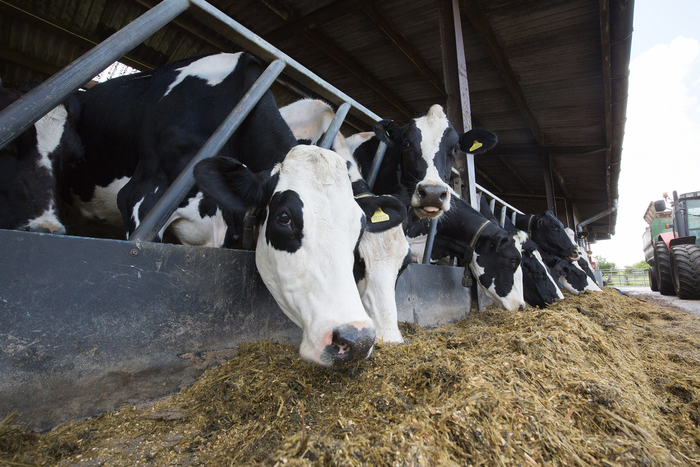With UK farmgate milk prices maintaining a downward trend since the start of 2020, dairy farmers are being urged to maximise their contract returns by continuing to produce low somatic cell count (SCC) milk. And feeding protected selenium can help, says a nutrition expert.
“Milk buyers penalise you for high SCC milk, which can be an indication of sub-clinical mastitis, so it makes sense to continually manage your herd to minimise this potential loss of income. It pays to target less than 100,000 cells per ml of milk year-round, which indicates disease-free status and secures your payment bonuses,” says ruminant specialist Jacob Lakin from Azelis Animal Nutrition.
However, he explains that alongside the immune status of the cow, many factors can influence SCCs, including breed, stage of lactation, body condition score, parity, seasonality, milking hygiene and even poor nutrition.
“Consequently, dairy farmers must employ an integrated strategy to reduce mastitis incidence and high SCCs – and effective breeding, husbandry, disease management, nutrition and milking routine hygiene are all important,” he says.
Mr Lakin says that maintaining an adequate selenium status is particularly important as milking herds move into the early winter feeding period.
“Dairy cows have a seleno-dependent enzyme known as glutathione peroxidase, which protects the epithelial cells in the mammary gland from oxidative stress. And research has clearly shown the beneficial effect of ensuring the selenium levels supplied are adequate, within recommendations and that the source of the trace element is of high quality.”
He explains that feeding a high-quality selenium enriched yeast, such as Plexomin Se 2300ppm – with a large part of the mineral supply coming from organic selenomethionine – will definitely help as part of a multi-faceted approach to help keep bulk milk tank SCCs below the crucial 100,000 cells per ml threshold.
What’s more, he adds that in high SCC cows, milk yield and composition can also be adversely affected to deliver a ‘double whammy’ of lost returns.
“A reduction in milk yield is often associated with an increase in mastitis severity. When mastitis develops milk lactose concentration drops, which results in a lower output. This yield reduction is also associated with the damage caused to the epithelial cells of the mammary gland, so any nutritional support that can help to offset this process is well worth considering,” he says.


